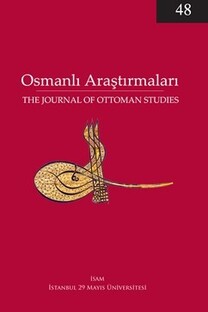Anahtar Kelimeler:
reddiye, dinlerarası polemik, Osmanlı Yahudileri, Müslüman- Yahudi İlişkileri, II. Bayezid.
Conversion and Polemic in the Late-Fifteenth Century Ottoman Empire: Two Polemical Treatises Against Judaism
Two Jewish converts to Islam in the service of Bayezid II penned the earliest known anti-Jewish polemicals in the Ottoman Empire. This article aims at exploring the historical context of the two epistles and their connection with Islamic polemical literature. The simultaneous appearances of Abd al-Salam’s Risāla al-hādiya and Abd al-Allam’s Risāla al-ilzām al-Yahūd will be discussed in the context of the Sephardic influx to the Ottoman lands, an encounter that stimulated scholarly interest in the Jewish faith among Ottoman intellectuals. At first glance, the two treatises seem to be structured so as to persuade a Jewish audience to embrace the Muslim faith by abandoning their former religion. However, the choice of Arabic instead of Hebrew, and the circulation of the texts primarily among Muslim readers suggest that ad- dressing the Jews appears to have been a rhetorical tactic. Considering the negative connotations attached to converts by the Ottoman elite, the authors might also have viewed the composition of anti-Jewish treatises as an effort to distance themselves from their Jewish past.
Keywords:
Muslim Polemics, interreligious polemics, Ottoman Jews, Muslim-Jewish Relations, Bayezid II.,
___
- Abd al-Salam, al-Muhtadi al-Muhammadi: Risāla Al-Hādiya, Topkapı Sarayı Müzesi Yazma Eserler Bölümü, MS TSMK A. 1735; Princeton Digital Library of Islamic Manuscripts, MS Garrett 974H; Süleymaniye Kütüphanesi, MS Fatih 2994, MS Laleli 3706/36, MS Reşidefendi 1039/7, Esad Efendi 6/5; Erzurum İl Halk Kütüphanesi, MS 24053/1; Manisa İl Halk Kütüphanesi, MS 8061/1; Leiden University Library, MS Or. 17.054, ff. 125b-127b
- ISSN: 0255-0636
- Yayın Aralığı: Yılda 3 Sayı
- Başlangıç: 1980
- Yayıncı: TDV İslâm Araştırmaları Merkezi
